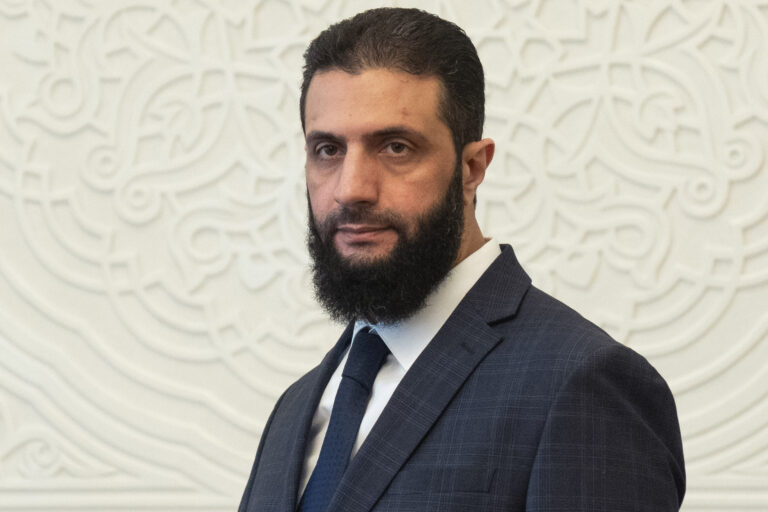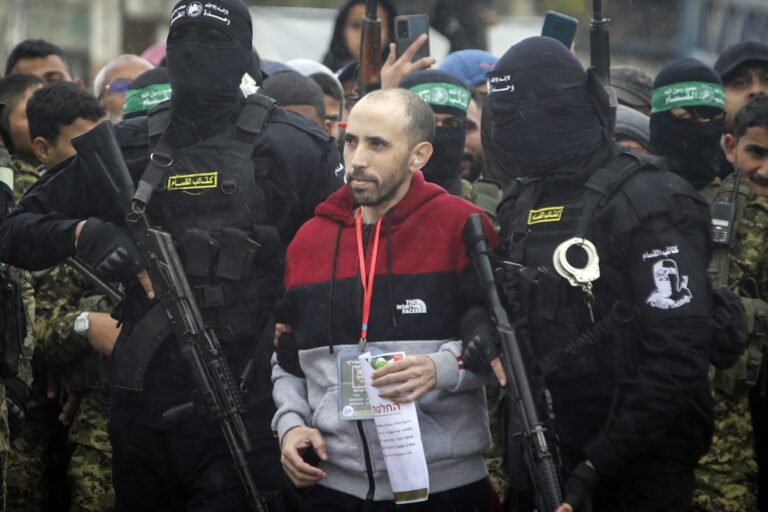Orthodox Jews are accustomed to being portrayed unfairly in the media. In challenging times, we prove to be particularly enticing targets.
The current crisis, no exception, spawned the usual negativity aimed at our community, presented by writers who cherry picked instances of individuals’ irresponsible actions and portrayed them as characteristic of charedi attitudes and actions, painting our community in ugly colors with the broadest of brushes.
Agudath Israel of America, which has been one of the Orthodox groups at the forefront of informing, directing and encouraging responsible behavior in the Orthodox Jewish community since the advent of the Covid-19 challenge, extends its appreciation to those journalists who didn’t shrink from telling the story of the Orthodox reaction to the crisis in an honest and objective manner, honestly and objectively.
Among them are two writers at the Forward, its editor-in-chief Jodi Rudoren and its op-ed editor Batya Ungar-Sargon; columnist Ira Stoll; and News 12 New Jersey, anchor Kurt Siegelin.
Ms. Rudoren penned a compelling column explaining how a current of animus against charedim underlay some attitudes toward them, and how some who “never really understood or respected the insular… religious way of life” of charedi communities chose to see the high rates of coronavirus infection in those communities as the result of irresponsibility rather than, more accurately, the result of “dense neighborhoods with high rates of poverty, like other New York virus hotspots.”
Ms. Ungar-Sargon highlighted what she called the “shameful” coverage of the charedi community of late in The New York Times. The revered newspaper, she noted, not only included errors of fact but betrayed a disturbing and telling double standard, in its portrayals of two communities that “suffer from overcrowding, high rates of poverty, and a huge language barrier.” One was described as “the victim of coronavirus and government apathy, while the other [the charedi, as] the recalcitrant ‘source of the problem’.”
“It’s truly ugly,” was her conclusion.
Writing in the Algemeiner, Mr. Stoll likewise focused on The Times’ coverage. One community’s high rate of infection, the paper asserted, was due to “what public health researchers say are entrenched inequalities in resources, health and access to care.” And the other, about a charedi community in Israel, blamed the victims for “failing to comply with government restrictions” – restrictions, as it happened, that hadn’t yet been put in place! – and for its alleged harboring of “a deep distrust of state authority [and] ignorance of the health risks.”
The facts, though, wrote Mr. Stoll, “suggest that the spread of the virus may have less to do with the supposed ignorant zealotry of Orthodox Jews and more to do with the mechanism of the way the disease spreads, from one person who has it to another.”
Mr. Siegelin, for his part, posted a long and laudable apology for inadvertently promoting a false allegation about a Jewish school operating against New Jersey rules – and, to his chagrin, for bringing a clutch of rabid anti-Semites out of the state’s woodwork onto social media. He had tweeted about “a school bus full of kids from Lakewood [New Jersey, which has a substantial charedi population], “Apparently,” he speculated, “the school is still ‘open’ despite mandatory shutdown.”
It turned out that the bus had been delivering food to local families and that it was not “full of kids,” Several of the driver’s children had accompanied him on his rounds.
To his credit, Mr. Siegelin, when the facts came out, quickly admitted that “The story I posted on twitter was incorrect,” and that “the (at times) vile posts directed at people in Lakewood were out of line, but created by my tweet.”
“Seeing the reaction,” he wrote further, “was honestly pretty scary.”
“Was it all,” he wondered, “a media setup?” Are some people “pushing an anti-Semitic agenda?”
“I don’t know,” he wrote, “But there’s enough evidence from the feedback I got on Twitter, that yes, it could very well be. In which case, I got played.”
Many media that fell short of the journalistic ideal of objective reporting got played as well.
A broad swath of the charedi community looks to Agudath Israel for guidance, and heeded our repeated recommendations over the past weeks, updated each time new information was available.
Back on March 9, before any rules had been put in place in New York or New Jersey, Agudath Israel alerted the community to the potential danger of Covid-19, and, in cooperation with leading infectious diseases specialists and the NYC Department of Health and Mental Hygiene, addressed a number of pressing questions. The alert noted that the obligation to protect life “is central and recurring in halacha.”
While social distancing had not yet at the time been instituted, the alert noted that personal contact with others should nevertheless be avoided.
Our recommendations were updated on March 13. In that update, we notified the public of health authorities’ new recommendation – issued the previous day – that social distancing be observed and that New York and New Jersey had banned large gatherings.
Two days later, we issued yet another directive, noting that “infectious disease specialists are now strongly recommending extreme measures to severely limit all social or communal gatherings, including closing shuls and schools.”
“These necessary, preventative steps,” we advised, “deserve strong consideration, even in communities that have not experienced appreciable incidences of COVID-19. The tipping point has been reached.”
On the 18th, educational facilities in New York were ordered closed, and the Moetzes Gedolei HaTorah issued an “urgent call” to the community, “implor[ing] each person to listen to the direction of the expert medical professionals who are unified in warning about the seriousness of the current situation.”
That was followed, two days later but an impassioned and eloquent video message from Rabbi Yaakov Perlow, zt”l, the Novominsker Rebbe and Rosh Agudas Yisroel, mere weeks before he was called to Heaven, personally expressing the need for heeding medical authorities’ directives.
That same day, Agudath Israel, along with other Orthodox Jewish organizations, issued a joint statement reiterating that they had “heretofore urged not only full compliance with all health guidelines issued by federal, state, and local governments, but have gone beyond those pronouncements in urging our communities to remain at home and avoid, to the maximum extent feasible, any outside interactions. In keeping with those guidelines, we have mandated scrupulous hygiene and social distancing, and urged everyone to stay home and minimize physical interaction.”
“We have taken the unprecedented and deeply distressing step,” the statement continued, “of shuttering the central fixtures of our lives – our shuls, yeshivos and schools – and certainly [must] eliminate other gatherings.”
And on March 23, a second joint statement declared that truly honoring Pesach this year entailed “limiting our purchases to the truly ESSENTIAL, ensuring that all of us – especially the vulnerable – are able to celebrate Pesach in good health.”
“We must,” the missive concluded, “STAY HOME; SAVE LIVES.”
To intensify that message, Agudath Israel created a persuasive video, publicized on April 2, that included community members detailing how they were going to celebrate Pesach this year, many for the first time ever on their own, and other without other family members present. All in order to help limit the spread of Covid-19. “Their message,” the accompanying description stressed, “applies to us all.”
On April 6, Agudath Israel, which worked in conjunction with the National Association of Chevra Kadisha issued detailed guidelines for Jewish funerals, severely limiting attendances and encouraging other restrictions, in order to ensure the safety of the community.
The timeline above is offered here because it was largely ignored – and even misrepresented – by some media and pundits.
Such lapses and sins of reportage about the charedi community won’t likely ever go away.
But we are heartened all the same by the examples of responsible journalism that stood out from the pack in recent weeks.












One Response
I am surprised that the author of the letter did not mention Judi Franco of Jersey 105.1 FM who also constantly portrays the Orthodox community in a favorable manner. She was one of those who vociferously contradicted Kurt Siegelin’s initial report.